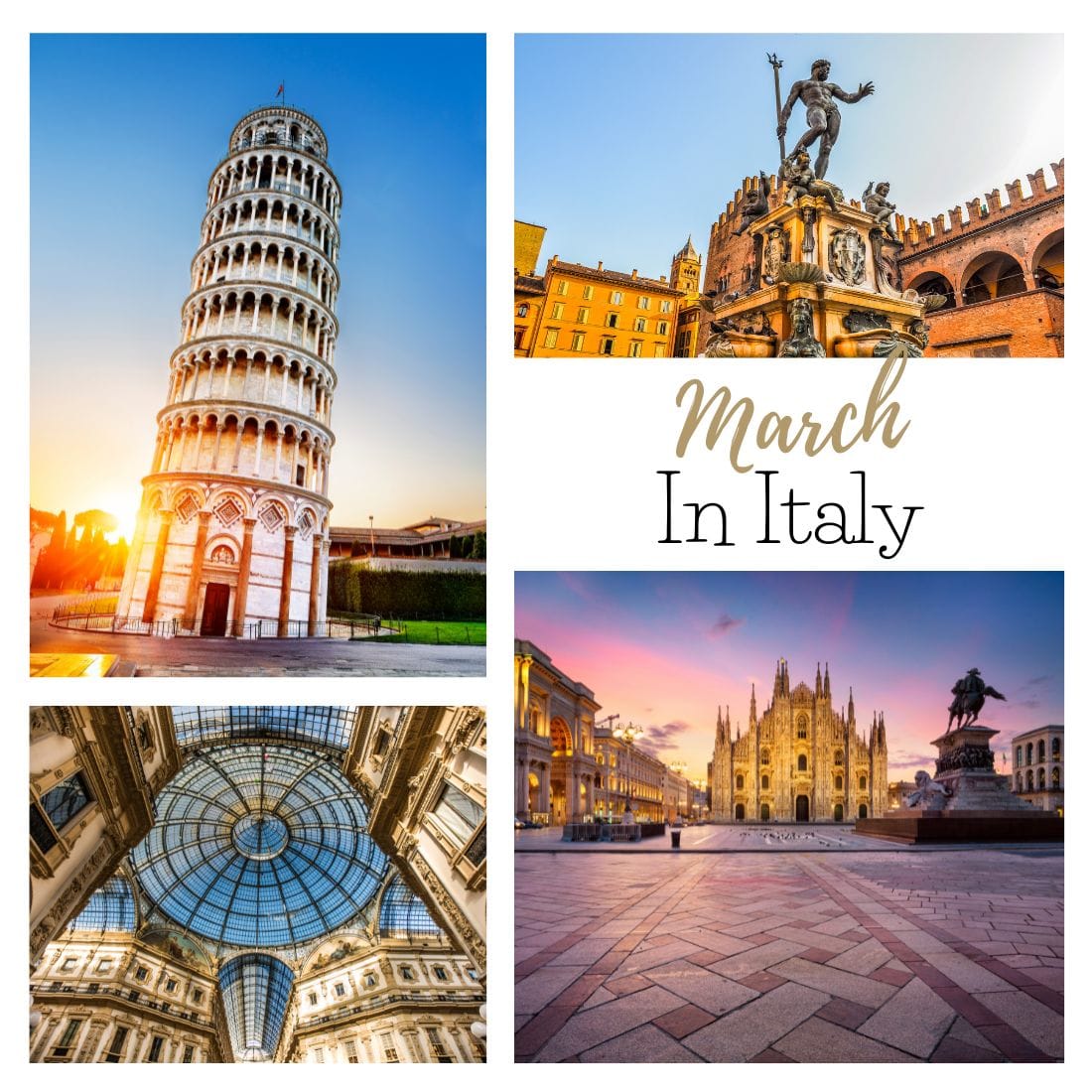Visiting Italy In March: Everything You Need To Know
Searching for what is it like to visit Italy in March? In this guide you will discover everything you need to know about the weather, demand, pricing, and the best things to do.

Wondering what Italy is like in March and whether it’s a good time to visit? You’re in the right place. Here’s everything you need to know about visiting Italy in March—from the weather and prices to how busy it gets and the best things to do.
Italy’s Weather In March
March is a transitional month in Italy, with the first real signs of spring appearing. Weather varies a lot depending on region:
- Northern Italy (Milan, Venice, Turin, Dolomites): Still a bit chilly, especially early in the month. Daytime highs generally sit between 5°C and 13°C (41°F to 55°F), with cooler nights. Rain is common, and snow may linger in the mountains.
- Central Italy (Rome, Florence, Tuscany): Milder. Expect highs of about 8°C to 16°C (46°F to 61°F). Days become progressively sunnier toward the end of the month. Some rain showers, especially early on.
- Southern Italy & Islands (Naples, Sicily, Puglia, Sardinia): Warmer and more pleasant. Temps tend to range between 10°C to 18°C (50°F to 64°F). Rain is possible but less frequent and lighter. Spring blooms often begin.
Pack layers, a warm jacket for mornings/evenings, waterproof gear (umbrella or raincoat), and shoes that handle both damp streets and sunny patches.
Tourism Demand & Pricing
March is still in Italy’s off‐peak/low season (except for certain festival or holiday periods), which brings benefits plus a few things to watch out for.
- Tourism Demand: Much lighter than summer. Most big cities are manageable — fewer crowds in Rome, Florence, Venice. But when events like Carnevale or Easter fall in or near March, certain places (especially Venice) get busy temporarily.
- Pricing: You’ll usually find cheaper flights, hotels, and tours compared to peak summer months. Accommodations and transport are more available. If traveling during event dates, expect those particular spots to have price spikes.
- Atmosphere: Generally relaxed and fresh. Cities start feeling livelier toward the end of March as spring approaches. Southern parts are especially pleasant. Be prepared for some mid‐month rain, and certain rural or mountain areas may still feel quiet.
Best Things To Do In Italy In March
March offers a lot of sweet spots for travel — fewer tourists, emerging spring scenery, and a mix of indoor and outdoor options.
- Celebrate Carnevale (Carnival): If your timing lines up, places like Venice, Viareggio, or smaller towns that hold Carnival festivities are lively and colorful. It’s one of the biggest draws in early spring.
- Enjoy spring blooms and countryside: The hills of Tuscany, Umbria, and the countryside around Rome become more vibrant with new growth. Great for scenic drives, walks, or doing photo‐friendly excursions.
- City sightseeing with fewer crowds: Rome, Florence, Milan are much easier to explore in March. Museums, landmarks, galleries are more accessible without long queues.
- Head south for milder weather: Sicily, the Amalfi Coast, and Puglia offer more agreeable spring‐like conditions. Good for coastal walks, archaeology, and enjoying views without the summer rush.
- Attend seasonal festivals and cultural events: March hosts religious and cultural events: International Women’s Day (March 8), Festa di San Giuseppe (March 19), Holy Week (in years when it falls in March), local markets. These bring local flavor and occasional crowd bursts.
You can:
- 🎭 Join Carnival festivities in Venice or other towns
- 🌸 Drive through countryside blooming with spring in Tuscany/Umbria
- 🏛️ Tour major cities with fewer people and a calmer pace
- ☀️ Explore southern Italy’s coast and islands for mild weathe
- 📸 Visit during local festivals for a cultural boost
- 🍷 Taste early spring seasonal food and wines
Italy Sunrise & Sunset In March
Daylight is increasing rapidly through March. Useful windows for outdoor plans:
- Early March:
Sunrise ~ 6:45–7:00 AM
Sunset ~ 5:30–5:45 PM - Late March:
Sunrise ~ 6:10–6:30 AM
Sunset ~ 6:30–6:45 PM
By the end of March you’re getting around 11 to nearly 12 hours of daylight. Best to plan outdoor/moveable things between mid‐morning and late afternoon.
Save 40%-95% On Flights With Jetsetter Alerts Cheap Flight Alerts
